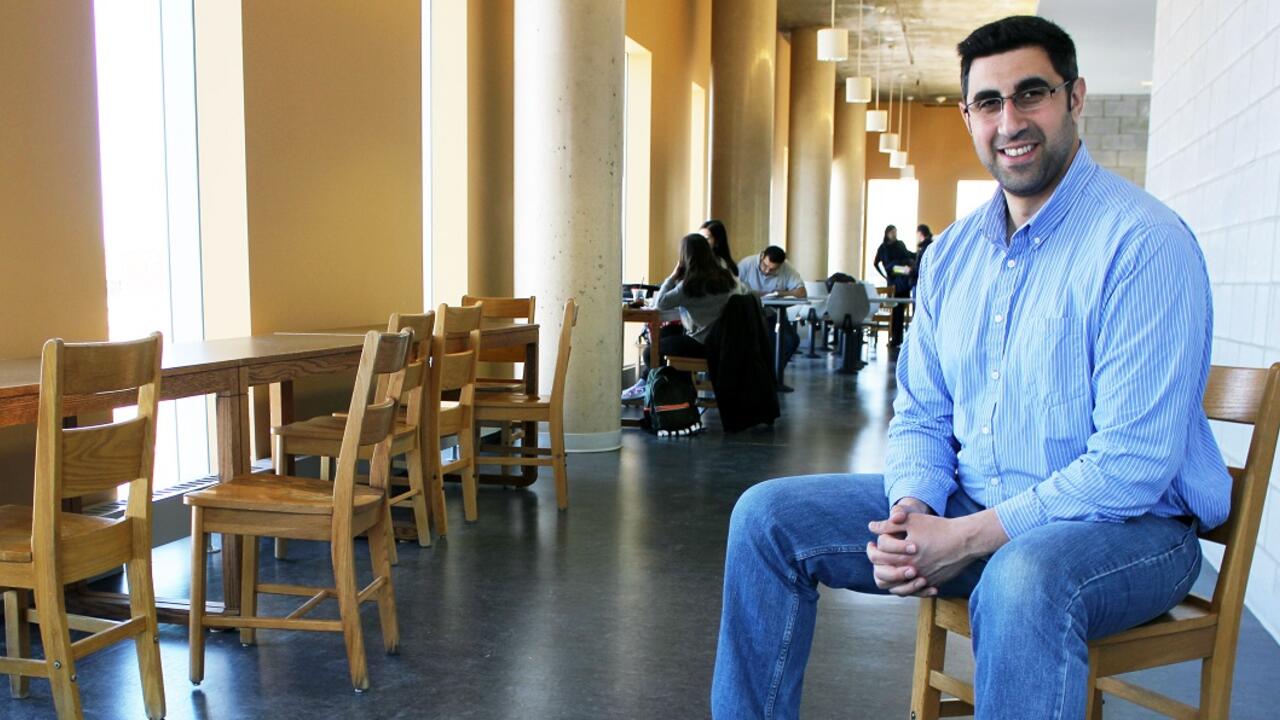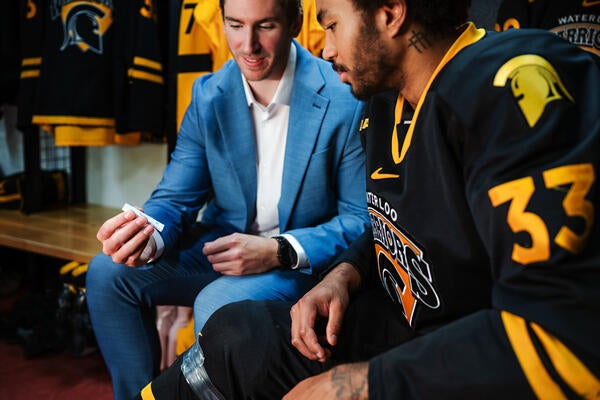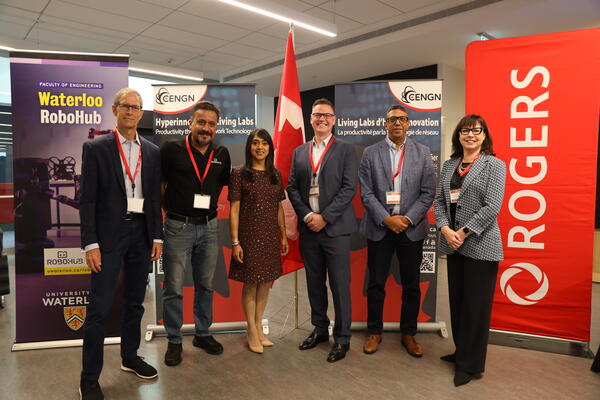
Professor provides tough love to budding entrepreneurs
Nasser Abukhdeir is known for his honest feedback when it comes to assessing the potential of ideas and the ability of student teams to develop them into viable businesses

Nasser Abukhdeir is known for his honest feedback when it comes to assessing the potential of ideas and the ability of student teams to develop them into viable businesses
By Brian Caldwell Faculty of EngineeringNasser Abukhdeir will probably never get accused of going too easy on students who have hopes of turning their fourth-year design projects into commercial ventures.
By his own admission, the University of Waterloo chemical engineering professor is “brutally honest” when it comes to assessing the potential of ideas and the ability of Capstone Design student teams to develop them into viable businesses.
“I am not a hand-holder,” says Abukhdeir, who came to teach and do research at Waterloo Engineering six years ago. “Tough love is definitely a good description of what I provide.”
His pragmatic approach, he realizes, isn’t for everyone. Some students have wilted under his scrutiny.
But as they prepare to go to market with innovative products after plenty of hard work and perseverance, the founders of two successful student startups say the critical feedback they received from Abukhdeir was key to their early progress.
“He was basically the spark of energy that we required to believe in ourselves, to believe it was possible,” says Matin Esfahani, co-founder and CEO of Lumotune.
Abukhdeir was the faculty adviser when nanotechnology engineering students Esfahani, Hooman Safaee and Shafi Siddiqi hit on an idea to turn any window into a changeable display for advertising or other messaging.
Looking back, he says that in addition to a sound concept, it was obvious the trio had the passion and thick skins needed to be entrepreneurs.
“If they’re still ready to do it, if they still have a solid idea, after my treatment, you know they’re going to do well,” says Abukhdeir.
Lumotune went on to win $25,000 in the University’s Velocity Fund Finals, as well as several other startup pitch competitions. It is still going strong, working out of an office at Communitech in downtown Kitchener, four years after its founders graduated.
Esfahani says the company, staffed by five full-time employees and three co-op students, has some customers lined up and plans to begin making see-through, 42-inch display screens this year for use on windows at locations including stores and offices.
“It feels good to finally be in this position,” he says. “When we started, it was really just a far-fetched idea.”
With one student startup on its way, Abukhdeir also had an impact as another “special” team from Waterloo Engineering took its concept for a product to help prevent sunburn beyond the fourth-year project stage.
Suncayr was an international runner-up in the prestigious James Dyson Awards in 2014 and, in addition to other honours, also collected $25,000 in the Velocity pitch competition in early 2015.
Three of the original five team members – nanotechnology engineering students Andrew Martinko, Derek Jouppi and Chad Sweeting – are still with the company, which is planning an initial, small-scale launch in Canada this summer of a product called SPOT.
Portions of playful images on the small, round stickers turn purple to warn users when their sunscreen is wearing off, exposing them to dangerous ultraviolet rays. Apply more sunscreen and the purple portions go back to being clear.
Martinko, the company’s CEO, also credits the no-nonsense guidance, advice and support Abukhdeir provided in the early going as factors in the strides they have since made.
“It was actually huge for us,” he says. “There’s no room in this business for sugar-coating or hand-holding. You need critical feedback to make sure you’re not wasting time.”
In addition to small operations in Waterloo and Toronto, Suncayr now has a presence in Australia – where skin cancer is a huge concern – after securing $100,000 in funding from the state of Queensland through a program to attract entrepreneurs.
It is collaborating with researchers at the Queensland University of Technology, for instance, on testing its SPOT stickers under conditions there.
That kind of initiative doesn’t surprise Abukhdeir after he recognized rare drive in team members when they were still undergraduates.
“In the end, everything they’ve accomplished is their own doing,” he says. “I just tried to steer them in the few decisions I could.”

Read more
New medical device removes the guesswork from concussion screening in contact sports using only saliva

Read more
Here are the people and events behind some of this year’s most compelling Waterloo stories

Read more
Living Lab initiative will help Canadian companies test and validate products and services at Waterloo’s RoboHub
The University of Waterloo acknowledges that much of our work takes place on the traditional territory of the Neutral, Anishinaabeg, and Haudenosaunee peoples. Our main campus is situated on the Haldimand Tract, the land granted to the Six Nations that includes six miles on each side of the Grand River. Our active work toward reconciliation takes place across our campuses through research, learning, teaching, and community building, and is co-ordinated within the Office of Indigenous Relations.